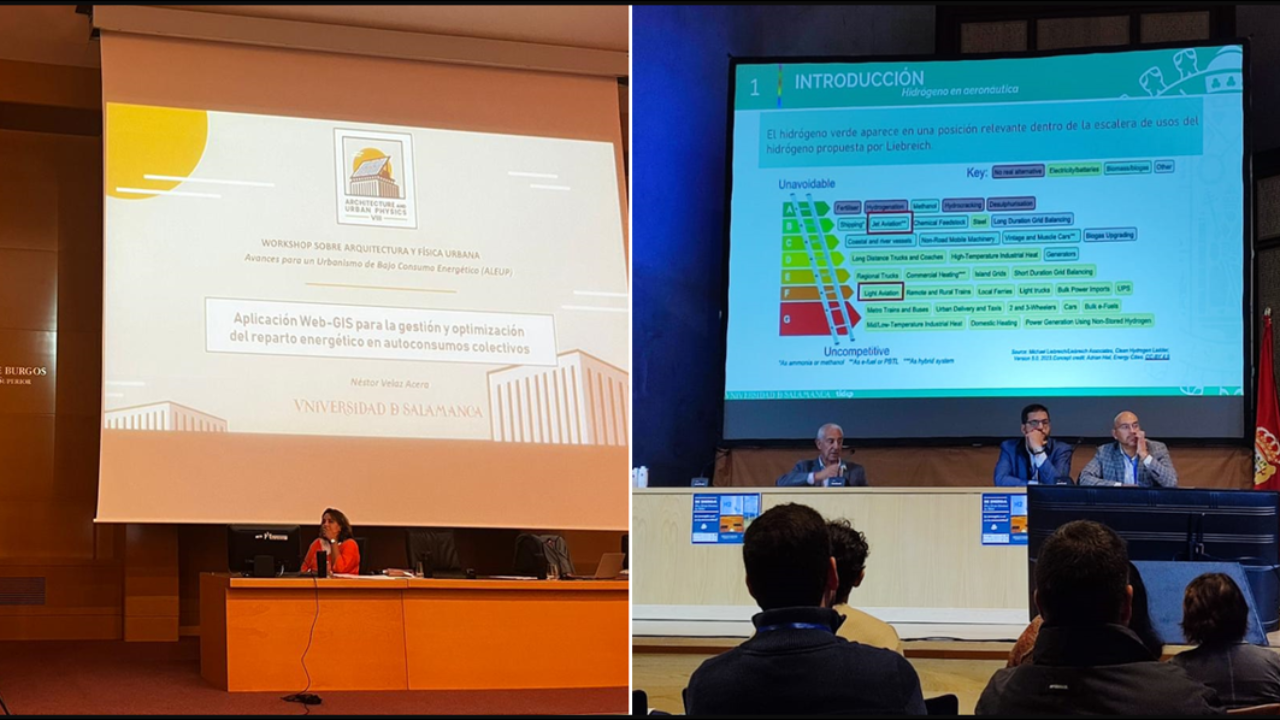The University of Salamanca, a member of the consortium formed under the Interreg SUDOE project “SHARED-H2”, participated during the past month of October in several energy-related events, where it showcased some of the developments it is currently involved in within the fields of energy communities and renewable hydrogen.
On 4 October, the university travelled to the Higher Polytechnic School of Burgos to take part in the VIII International Workshop on Architecture and Urban Physics. This event brought together leading experts in sustainable urban planning and renewable energy integration from prestigious international institutions such as the CIEMAT, the Polytechnic University of Valencia (UPV), and the Public University of Navarre (UPNA). Among the key topics, the workshop explored improvements brought by geotechnologies in mapping and assessing the solar potential of urban rooftops, and it analysed AI-based solutions for the management of collective self-consumption.
Additionally, on 23 and 24 October, the city of Ávila hosted the XII Ávila Energy Conference under the theme “Energy is in the Community”, organised by the Provincial Energy Agency of Ávila (APEA), where the University of Salamanca was invited to participate in several round tables. The event featured over 40 speakers, representing a broad network of institutions from the province of Ávila and other regions of Spain. These sessions provided a valuable opportunity to debate and exchange experiences on current topics such as renewable hydrogen, energy communities, and the vulnerability of rural areas and certain social groups.
Key conclusions from the events highlighted the need to increase awareness and understanding of new sustainable business and management models, such as energy communities and the deployment of new technologies like renewable hydrogen. Various experts emphasised the crucial role that digital enabling technologies (KET – Key Enabling Technologies), including artificial intelligence, digitisation, and digital twins, will play in the ongoing process of national and community-level sustainable energy transition. Finally, the need to promote active participation of both citizens and local authorities was underscored, aiming to foster local initiatives in areas such as improving residential sector efficiency by integrating renewable energy and enhancing energy consumption management, as well as implementing new mobility models and technologies, like collective hydrogen-powered transport or individual transport systems such as bicycles.

